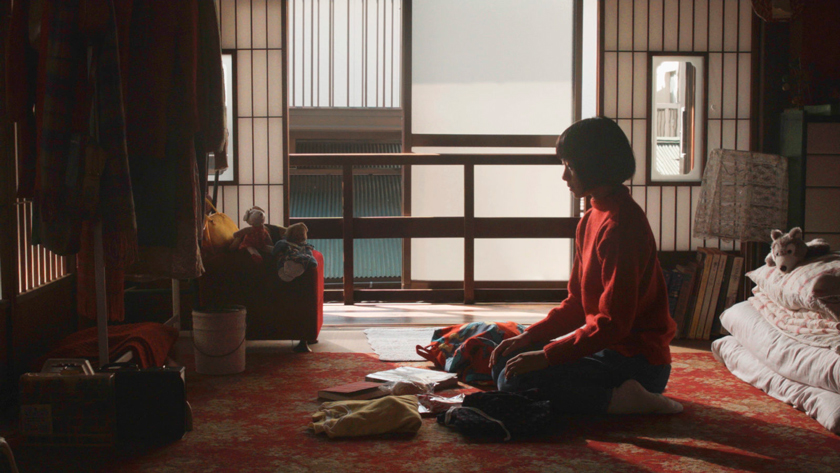At its core Kiyohara Yui’s Our House is a story of two women. Seri is an adolescent girl living in an old house with her mother who Seri knows is planning to get remarried with her new lover. Sana is an amnesiac who is given sanctuary in the home of Toko, a woman seemingly harboring many secrets. Gradually, however, the movie begins to reveal why it won two awards at the Pia Film Festival, and earned screenings at the Berlin International Film Festival’s Forum Section and at the Lincoln Film Center in New York. With a high-concept usually found in science fiction and the forward thinking of an experimental movie, Kiyohara slowly begins overlapping these stories occurring in parallel as the boundaries between them become increasingly porous. Yet, nothing about it suggests it is a “genre” movie per se. Though there is a level of spookiness applied by Kiyohara as the occupants of the house begin to sense one another–no doubt attributable to her mentorship with Kurosawa Kiyoshi–the contrivance is primarily a form of storytelling. In fact, Kiyohara’s inspiration was drawn not by the visual medium, but music.

©東京藝術大学大学院映像研究科映画専攻
The parallel storytelling is inspired by the fugues of Johann Sebastian Bach. Kiyohara became interested in how a fugue’s compositional technique of taking “two or more voices built around a subject (a musical theme) that is introduced at the beginning, repeated at different pitches, and recurs over the course of the composition” (from Wikipedia) could be visualized in a narrative. It’s a complex concept and it is for this very reason Kiyohara’s idea and execution are remarkable. Our House, as stated previously, could have been an avant-garde experimental film as befitting its inspiration, but impressions of the movie clearly suggest it is a first and foremost a touching story of female friendships with a hint of the metaphysical. In other words, Kiyohara utilized a fresh approach to filmmaking in order to convey a still relatable, human story.
In her comment published on the Pia Film Festival website upon the announcement of Our House being accepted to the Forum Section, Kiyohara stated she “made the movie placing importance on the experimental portions and the universal elements in addition to taking stock of what no one has accomplished before and the whole history of cinema.” With such passion for what has preceded her and the boundaries she can move, Kiyohara most certainly has earned the praise given by the New Directors/New Films Festival who hailed her “as an “exciting new voice in Japanese cinema.” Time will only tell if she will be able to continue making movies like Our House in the current independent movie climate of Japan.

